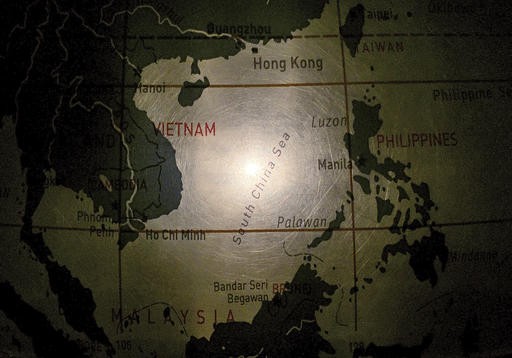Popular Reads
Top Results
Can't find what you're looking for?
View all search resultsPopular Reads
Top Results
Can't find what you're looking for?
View all search resultsBeijing lashes out at South China Sea tribunal
Change text size
Gift Premium Articles
to Anyone
A
n international arbitration tribunal abused its powers and acted unjustly by taking up Manila's case against Beijing over their South China Sea dispute, China has said in its latest attempt to justify why it refused to take part in the proceedings or accept the impending ruling.
Senior diplomat Xu Hong said at a media briefing Thursday that the tribunal's five judges had "rushed" to hear the case without examining the link between Manila's claims and territorial sovereignty.
The Philippines has submitted claims in three areas: clarifying the legality of China's nine-dash line that covers a large swathe of the South China Sea; the status of Chinese-occupied features such as reefs and their maritime entitlements; and China's activities in what the Philippines considers its exclusive economic zone.
Xu pointed out how the Philippine Foreign Ministry, a day after taking the case to the United Nations in January 2013, had explicitly said the purpose was "to protect [its] national territory and maritime domain" and talked about not surrendering its national sovereignty.
"Even the Philippines itself has laid bare its actual objective, so why did the Arbitral Tribunal turn a deaf ear?" said Xu, director-general of the Foreign Ministry's Treaties and Law department.
He alleged that at least two of the five judges had reversed their academic stances to justify the tribunal's decision last October that it had jurisdiction over the case.
He pointed out that the tribunal's opinion - that entitlement and legal status of maritime features can be separated from maritime delimitation - is not only contradictory to the practice of international law but also inconsistent with the propositions held by at least two arbitrators in their previous writings.
"They had held that the legal status and maritime entitlements of maritime features are closely linked with maritime delimitation, but now they have reversed their position. I guess they owe the world a credible explanation," said Xu.
Territorial sovereignty and maritime delimitation are among the areas that Beijing has chosen to exclude from arbitration proceedings under the United Nations Convention on the Law of the Sea since 2006.
Xu said the tribunal's "abuse of power" justifies China's decision to ignore the ruling expected early next month. In doing so, he said, China is also protecting the sanctity of international law and fulfilling earlier pacts with Manila on resolving South China Sea spats through bilateral negotiations, even though Manila "has not kept its word".
China has been holding media briefings on the case and canvassing support from other countries to influence public opinion ahead of the ruling.
Professor Zhang Mingliang, a Sino-Asean relations expert at Jinan University, noted that it is likely the first time that the Chinese government has turned from attacking Manila to criticizing the tribunal.
He told The Straits Times that Beijing's move might backfire, adding: "Casting aspersions on the judges' credibility... may not be well accepted by many, especially coming from a big country.
"And even if it is true that some judges did change their position, focusing on them now may give the impression that China is launching personal attacks out of desperation to minimize the impact of the case."







